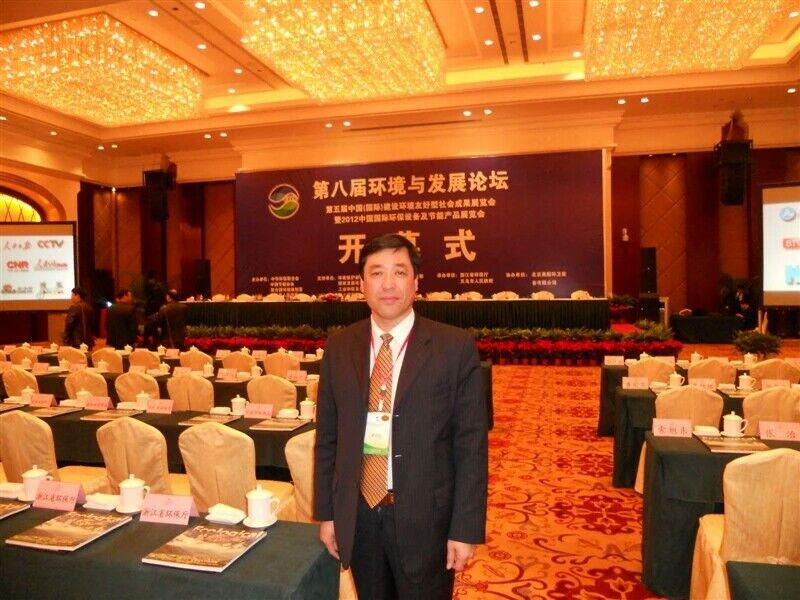What is the most important English skill? What skill must you have to communicate well?
КІГҙКЗҢW(xuЁҰ)әГУўХZ(yЁі)ЧоЦШТӘөДјјЗЙДШ����ЈҝКІГҙҳУөДјјЗЙДгІЕДЬЧҢДгБчАыөШңПНЁДШЈҝ
Obviously, number 1 is Fluency. What is fluency?
әЬГчп@�����Ј¬өЪТ»ЦШТӘөДҫНКЗБчАы����Ј¬КІГҙБчАыДШЈҝ
Fluency is the ability to speak (and understand) English quickly and easily... WITHOUT translation.
БчАыҫНКЗҝмЛЩөШәНЭpЛЙөШХf(shuЁӯ)УўХZ(yЁі)әНАнҪвУўХZ(yЁі)���Ј¬¶шІ»ИҘ·ӯЧg�����ЎЈ
Fluency means you can talk easily with native speakers����Ј¬they easily understand you, and you easily understand them.
БчАыТвО¶ЦшДгҝЙТФЭpЛЙөШәНұҫНБИЛКҝБДМм�����Ј¬ЛыӮғҝЙТФЭpЛЙөШБЛҪвДгөДЦvФ’ғИ(nЁЁi)ИЭ�����Ј¬Н¬•r(shЁӘ)Ј¬ДгТІҝЙТФЭpЛЙөШАнҪвЛыӮғөДЦvФ’ғИ(nЁЁi)ИЭ����ЎЈ
In fact, you speak and understand instantly.
КВҢҚ(shЁӘ)ЙП�Ј¬ҫНКЗДгБўҝМҫНҝЙТФХf(shuЁӯ)әНАнҪвөДДЬБҰЎЈ
Fluency is your most important English goal.
БчАыКЗДгҢW(xuЁҰ)Б•(xЁӘ)УўХZ(yЁі)ЧоЦШТӘөДДҝҳЛ(biЁЎo)���ЎЈ
The research is clear��Ј¬there is only ONE way to get fluency.
Х{(diЁӨo)ІйСРҫҝТСҪӣ(jЁ©ng)Т»Зе¶юію����Ј¬Ц»УРТ»ӮҖ(gЁЁ)·Ҫ·ЁҝЙТФЧҢДгЯ_(dЁў)өҪБчАы�����ЎЈ
You do not get fluency by reading text- books. You do not get fluency by going to English schools. You do not get fluency by studying grammar rules.
ДгІ»ДЬНЁЯ^(guЁ°)йҶЧxҪМҝЖ•ш(shЁұ)«@өГБчАы�Ј¬ДгІ»ДЬНЁЯ^(guЁ°)ИҘУўХZ(yЁі)ҢW(xuЁҰ)РЈ«@өГБчАыЈ¬ДгІ»ДЬНЁЯ^(guЁ°)ҢW(xuЁҰ)Б•(xЁӘ)ХZ(yЁі)·ЁТҺ(guЁ©)„t«@өГБчАы�����ЎЈ
Listening is the key.
В (tЁ©ng)ІЕКЗкP(guЁЎn)жIЎЈ
To get English fluency, you must have a lot of understandable repetitive listening.
ТӘПлК№УўХZ(yЁі)ЧғөГБчАы�����Ј¬ДгұШнҡ·ҙҸН(fЁҙ)У–(xЁҙn)ҫҡҙуБҝҝЙТФАнҪвТвЛјөДВ (tЁ©ng)БҰЩYБП��ЎЈ
That is the ONLY way. To be a FANTASTIC English speaker, you must learn English with your ears, not with your eyes.
Я@КЗОЁТ»өД·ҪКҪ�����Ј¬ПлЦvіцБчАыөДУўХZ(yЁі)�Ј¬ДгұШнҡУГДгөД¶ъ¶дИҘҢW(xuЁҰ)Б•(xЁӘ)Ј¬¶шІ»КЗДгөДСЫҫҰ�ЎЈ
In other words, you must listen. Your ears are the key to excellent speaking.
“QҫдФ’Хf(shuЁӯ)Ј¬ДгұШнҡВ (tЁ©ng)�Ј¬ДгөД¶ъ¶дКЗҢW(xuЁҰ)әГБчАыУўХZ(yЁі)өДкP(guЁЎn)жIЎЈ
What kind of listening is best? Well, it must be understandable and must be repetitive. Both of those words are important�Ј¬Understandable and Repetitive.
ФхГҙҳУВ (tЁ©ng)ІЕДЬЧоУРР§ДШЈҝаЕ���Ј¬ұШнҡВ (tЁ©ng)ҝЙТФАнҪвөД–|Оч��Ј¬Н¬•r(shЁӘ)ұШнҡКЗ·ҙҸН(fЁҙ)ЦШҸН(fЁҙ)өДВ (tЁ©ng)��ЎЈЯ@ғЙӮҖ(gЁЁ)ҶОФ~КЗЧоЦШТӘөД���Ј¬ҝЙАнҪвөД����Ј¬әН·ҙҸН(fЁҙ)ЦШҸН(fЁҙ)өД��ЎЈ
If you don't understand, you learn nothing. You will not improve. That's why listening to English TV does not help you. You don't understand most of it. It is too difficult. It is too fast.
Из№ыДгВ (tЁ©ng)ДгІ»АнҪвөДЩYБП�Ј¬ДгҫНКІГҙТІҢW(xuЁҰ)Б•(xЁӘ)І»өҪЎЈДгТІІ»•ю(huЁ¬)МбёЯөД���ЎЈЯ@ҫНКЗһйКІГҙВ (tЁ©ng)УўХZ(yЁі)лҠТ•„ЎҢҰ(duЁ¬)Дгӣ](mЁҰi)УРКІГҙҺНЦъөДФӯТтЎЈДгІ»АнҪвЖдЦРҙу¶а”ө(shЁҙ)өД–|Оч�Ј¬ҫНКЗМ«лyБЛЈ¬М«ҝмБЛ���ЎЈ
ItЎҜs obvious��Ј¬right? If you do not understand, you will not improve. So, the best listening material is EASY. ThatЎҜs right, you should listen mostly to easy English.
Я@әЬГчп@���Ј¬ҢҰ(duЁ¬)І»ҢҰ(duЁ¬)ЈҝИз№ыДгІ»АнҪвөДФ’����Ј¬ДгҫНІ»•ю(huЁ¬)ЯM(jЁ¬n)ІҪЎЈЛщТФЈ¬ЧоәГөДВ (tЁ©ng)БҰЩYБПҫНКЗТӘәҶ(jiЁЈn)ҶО���ЎЈЯ@КЗәЬҢҰ(duЁ¬)өД����Ј¬ДгВ (tЁ©ng)өДҙу¶а”ө(shЁҙ)өДУўХZ(yЁі)ЩYБПұШнҡКЗәҶ(jiЁЈn)ҶОТЧ¶®өД���ЎЈ
Most students listen to English that is much too difficult. They donЎҜt understand enough, and so they learn slowly. Listen to easier English, and your speaking will improve faster!
ҙу¶а”ө(shЁҙ)өДҢW(xuЁҰ)ЙъВ (tЁ©ng)УўХZ(yЁі)ҫНКЗВ (tЁ©ng)ДЗР©әЬлyөДУўХZ(yЁі)����ЎЈЛыӮғёщұҫІ»АнҪв¶аЙЩ���Ј¬ЛщТФЛыӮғҢW(xuЁҰ)Б•(xЁӘ)өДәЬВэ�����ЎЈВ (tЁ©ng)Т»Р©әҶ(jiЁЈn)ҶОөДУўХZ(yЁі)ЩYБП���Ј¬ДгөДҝЪХZ(yЁі)ҫН•ю(huЁ¬)ЯM(jЁ¬n)ІҪәЬҝмөДЎЈ
Understanding is Only Half The Formula.
В (tЁ©ng)ДЬүтАнҪвөДЩYБПғHКЗЯ@ӮҖ(gЁЁ)·Ҫ°ёөДТ»°л��ЎЈ
Understanding is not enough. You must also have a lot of repetition. If you hear a new word only once, you will soon forget it. If you hear it 5 times, you will still probably forget it!
АнҪвІўІ»КЗЧгүтөД��Ј¬ДгұШнҡТӘ·ҙҸН(fЁҙ)В (tЁ©ng)Ј¬ИзЯ^(guЁ°)Т»ӮҖ(gЁЁ)РВҶОФ~��Ј¬ДгЦ»В (tЁ©ng)Т»ұй�Ј¬ДгәЬҝмҫН•ю(huЁ¬)НьУӣөДЈ¬Из№ыДгВ (tЁ©ng)ОеҙО�����Ј¬ҝЙДЬЯҖКЗ•ю(huЁ¬)НьУӣ��ЎЈ
You must hear new words and new grammar many times before you will understand them instantly.
ДгұШнҡВ (tЁ©ng)Я@Р©РВФ~…RәНРВХZ(yЁі)·ЁәЬ¶аҙО��Ј¬ЦұөҪДгВ (tЁ©ng)өҪЛыӮғөД•r(shЁӘ)әтҝЙТФБўҝМАнҪвоI(lЁ«ng)ОтКЗКІГҙТвЛј�����ЎЈ
How many times is necessary? Most people must hear a new word 30 times to remember it forever. To know a word and instantly understand it, you probably need to hear it 50-100 times!
өҪөЧ¶аЙЩұйІЕҝЙТФДШ����Јҝҙу¶а”ө(shЁҙ)өДИЛ¶јКЗВ (tЁ©ng)ИэК®ұйІЕҝЙТФУАЯh(yuЁЈn)УӣЧЎТ»ӮҖ(gЁЁ)РВФ~…R����ЎЈТӘПлХJ(rЁЁn)ЧR(shЁӘ)Т»ӮҖ(gЁЁ)РВҶОФ~Ј¬ІўЗТБўҝМоI(lЁ«ng)ОтЛыөДТвЛј�Ј¬ДгҝЙДЬРиТӘВ (tЁ©ng)50-100ұй��ЎЈ
That's why I tell my students to listen to all of my lessons many times. I recommend that they listen to each lesson a total of 30 times���Ј¬for exampleЈ¬2 times a day for two weeks.
Я@ҫНКЗһйКІГҙОТёжФVОТөДҢW(xuЁҰ)ЙъТӘВ (tЁ©ng)ОТЛщУРөДХnіМәЬ¶аұйөДФӯТт�����ЎЈОТНЖЛ]ЛыӮғГҝХnҝӮ”ө(shЁҙ)ЦБЙЩТӘВ (tЁ©ng)өҪИэК®ұй���Ј¬АэИзТ»МмВ (tЁ©ng)ғЙҙО�Ј¬В (tЁ©ng)ғЙӮҖ(gЁЁ)РЗЖЪ�����ЎЈ
So, the two most important points are: listen to easier English and listen to each thing many times.
ЛщТФ����Ј¬ЧоЦШТӘөДғЙӮҖ(gЁЁ)У^ьc(diЁЈn)ҫНКЗЈәВ (tЁ©ng)әҶ(jiЁЈn)ҶОТ»ьc(diЁЈn)өДУўХZ(yЁі)Ј¬И»әуВ (tЁ©ng)әЬ¶аұй���ЎЈ
(В•ГчЈәұҫХҫЛщК№УГҲDЖ¬ј°ОДХВИзҹo(wЁІ)ЧўГчұҫХҫФӯ„“(chuЁӨng)ҫщһйҫW(wЁЈng)ЙПЮD(zhuЁЈn)Эd¶шҒн(lЁўi)�����Ј¬ұҫХҫҝҜЭdғИ(nЁЁi)ИЭТФ№ІПнәНСРҫҝһйДҝөД�Ј¬ИзҢҰ(duЁ¬)ҝҜЭdғИ(nЁЁi)ИЭУР®җЧhЈ¬ХҲ(qЁ«ng)В“(liЁўn)ПөұҫХҫХҫйL(zhЁЈng)����ЎЈұҫХҫОДХВҳЛ(biЁЎo)УРФӯ„“(chuЁӨng)ОДХВЧЦҳУ»тХЯКрГыұҫХҫВЙҺҹРХГыХЯЈ¬ЮD(zhuЁЈn)Эd•r(shЁӘ)ХҲ(qЁ«ng)„Х(wЁҙ)ұШЧўГчіцМҺәНЧчХЯ�����Ј¬·с„tҢўЧ·ҫҝЖд·ЁВЙШҹ(zЁҰ)ИО����ЎЈ) |










